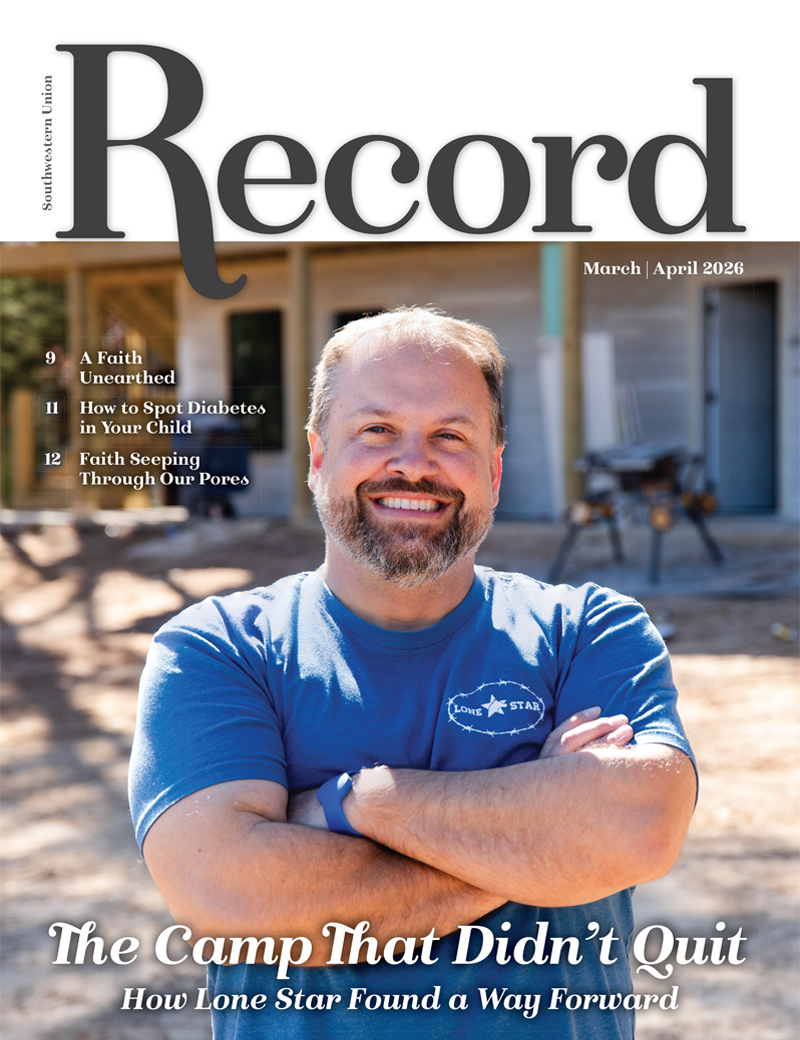Safeguarding the Mind: Cognitive Stewardship

Financial resources, time and… neural pathways? As believers we are often reminded of the importance of stewardship within the context of finances and time as responsible administration of these is a Biblical principle (ex: Matthew 25:14-30, Proverbs 13:22, Romans 13:11, 12), and it becomes increasingly relevant in light of the imminent return of Christ. However, there is one more stewardship principle we ought consider: cognitive stewardship.
According to Encyclopaedia Britannica, cognition may be defined as “all conscious and unconscious processes by which knowledge is accumulated, such as perceiving, recognizing, conceiving, and reasoning”. The information we gather from our surroundings informs our perception of reality and ultimately our decision-making. In other words, what the mind dwells on is closely linked to what it will in turn produce. It is no wonder that our theme for this current issue urges us to look upward to set our minds on things above, to be renewed in knowledge after the image of Christ (Colossians 3:2,10). For the Christian, cognitive stewardship is at the foundation of safeguarding the mind, the very instrument by which Divinity communes with Humanity.
As evidenced by the current Information Age, the Bible does not err when it assures us that just before the second coming, knowledge would increase (Daniel 12:4). Smart devices have become such an integral part of the human experience, that scientists have published numerous articles on the effects of screen time (social media, video games, TV) on the mind, including profound negative effects on mental health, behavioral disorders, brain connectivity and, yes, cognition (1-3). However, there is hope. Here are three easy habits we can implement to practice cognitive stewardship and unplug from our devices.
1. Green time.
Scientific literature abounds with evidence of the benefits of “green time”, or time spent in outdoor activities. Activities like hiking can reduce anxiety, strengthen the heart, and improve cognition, among other favorable outcomes. (4) God in His divine wisdom curated the masterpiece of nature to bless us in innumerable ways. As the psalmist affirms in Psalm 19:1, “the Heavens declare the glory of God and the firmament showeth His handiwork.” When we let our minds dwell on nature, the glory and character of God are unfolded before our eyes so that as we behold we may also be transformed.
2. Nap time.
Various studies have elucidated on the positive impact of daytime naps on the brain. (5,6,7) An early-afternoon nap can promote brain health by restoring memory and alertness. While most of us do not schedule sleep into our work day, we should note that even a fifteen-minute nap can significantly improve cognition. For example, one study reported an association between short daily naps and enhanced motor and procedural memory.
3. Social time.
Close friendships and social interconnectedness have proven to have neuroprotective effects for both young and old. People who experienced strong childhood friendships are more likely to preserve their cognitive function in advanced age (8). Conversely, social isolation in older adults is associated with depression, which in turn may result in cognitive decline (9).
Practicing cognitive stewardship by unplugging from excessive screen time and substituting with green time, nap time, and social time will give us clarity of mind as we set our sights on things above and strive to live with eternity in mind.
By Dr. Edna E. Gouveia
Pre-Residency Fellow in Neurosurgery at The Mount Sinai Hospital NYC


